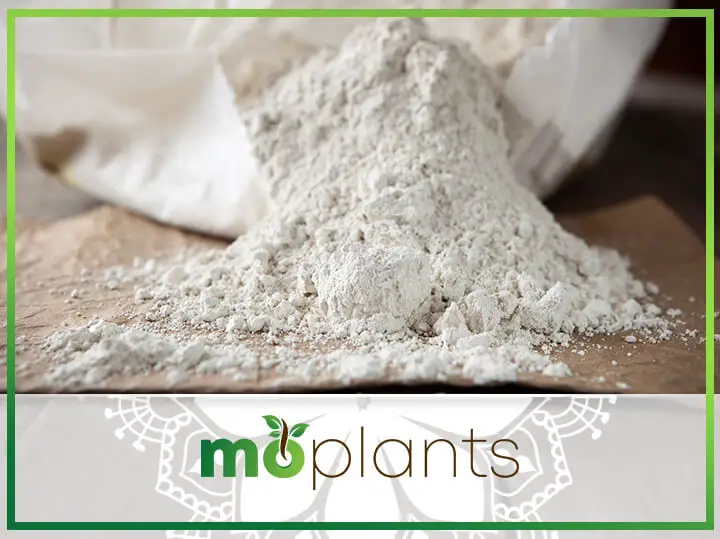Today, the world is going crazy about organic produce when it comes to maintaining a clean and healthy lifestyle. And why not, given all the chemical pesticides being used in our food products.
It’s never a bad thing to live naturally, growing your food, without worrying of harmful pesticides. It is really great how people are widely adapting to this practice of growing their fruits and vegetables.
Now, if you have ever tried to grow your fruits or vegetables, either in your home garden or on a farm, you are well aware of the terror or pests. Most people use artificial pesticides, while some prefer using natural pesticides.
In this article, we will dig into natural pest control with the use of Diatomaceous Earth.
Things to Know Before Buying Diatomaceous Earth for your Garden
Also abbreviated as DE, it is a pesticide found naturally as minerals and has a fine chalky white powdery texture. They are derived from fossilized skeletons of microscopic single-celled aquatic organisms called diatoms.
They are found as natural sediments on the earth’s crust in the form of silica. Over the years, they have found several different uses- for industrial products, organic pesticides and insecticides, filters in swimming pools, cosmetics, pharmaceuticals, and at times in food too.
DE’s elemental composition is 3% magnesium, 2% iron, 19% calcium, 5% sodium, and 33% silicon, along with other micronutrients and minerals.
The DE used in gardens and farms is different than those used in industries or filters. The latter has a much higher concentration of silica, which is toxic to humans and animals. For gardens and farms, food-grade DE is used as it is safer and gentle.
There are two forms of DE available:
- Powder used for gardens.
- Crystals used in filters and industries.
How Does Diatomaceous Earth Deter Garden Pests?
Besides being safe and gentle to the plants, there are multiple other reasons for using DE in vegetable farms and gardens.
- Keeps Slugs Away from Plants
Diatomaceous Earth has silica, which feels like tiny pieces of glass. When it comes in contact with the soft bodies of slugs and mollusks, they inflict cuts.
And the powder also has dehydration characteristics, which causes them to lose a lot of fluid and eventually die. You can sprinkle them on the leaves, as they can be washed off easily without causing any harm to the human body.
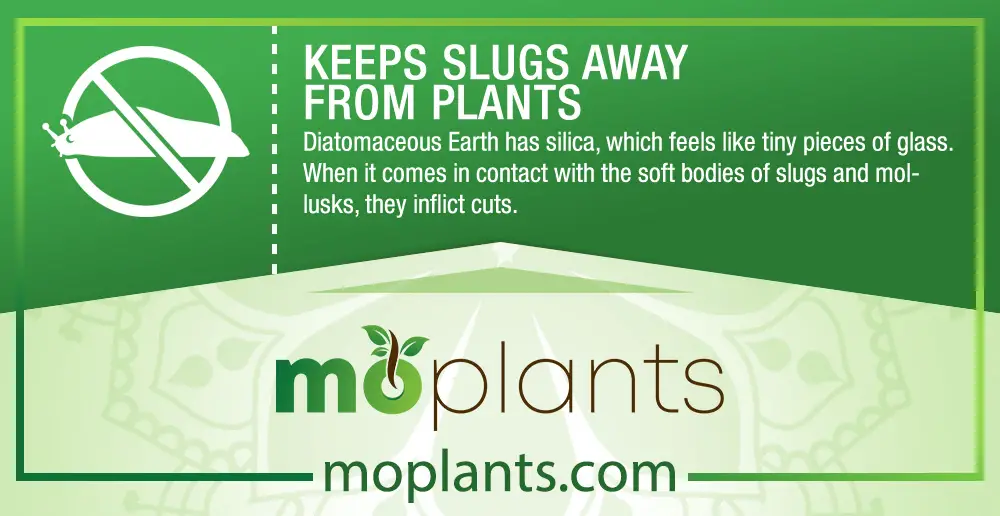
- As A Mechanical Pesticide and Eliminates Flies
DE is a non-toxic pesticide for the gardens, which has proven to be highly effective against any pests, insects, and crawlers as it causes immediate dehydration.
It is non-selective, which means it can work on all kinds of pests. You can sprinkle a little water on the plants and lightly dust the plants with DE. That way, it sticks to the leaves. Although it does not work effectively when wet, once dried up, it can start showing effects.
Flies, mainly black flies, can be a nuisance in the gardens during the Spring season. You can generously sprinkle the plants and ground with Diatomaceous Earth and douse the insects. Once in contact with the powder, the insects die of dehydration, but the challenge is they tend to avoid the areas treated with DE.
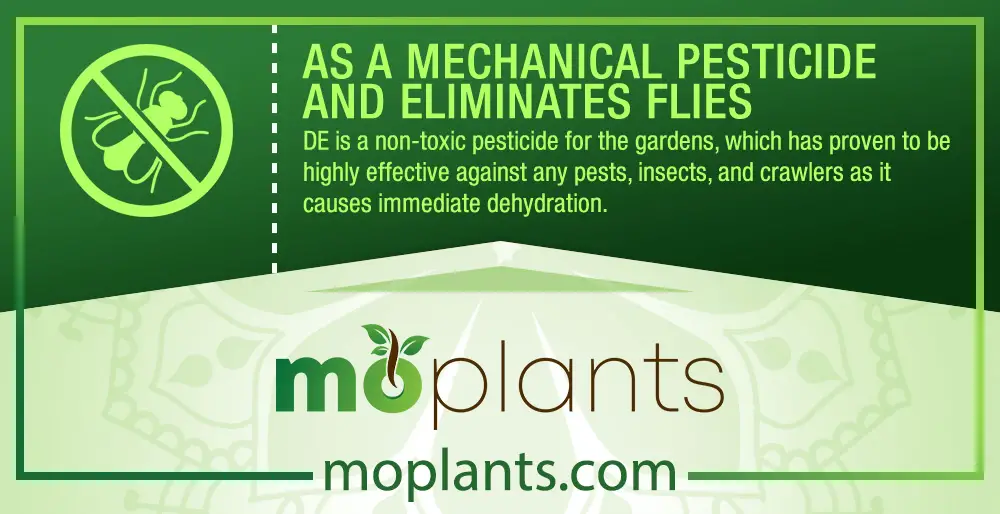
- Controls Aphids
Aphids can wreak havoc if not controlled by pesticides. Usually, chemical pesticides are used to eliminate them from the garden, but if you want a natural replacement, Diatomaceous Earth is an excellent remedy to aphids.
They like to feed on sap and plant juices by piercing through young soft plant tissues. This can restrict plant growth and also reduce yield. They populate rapidly, move on to the adjacent plants, and spread viruses too.
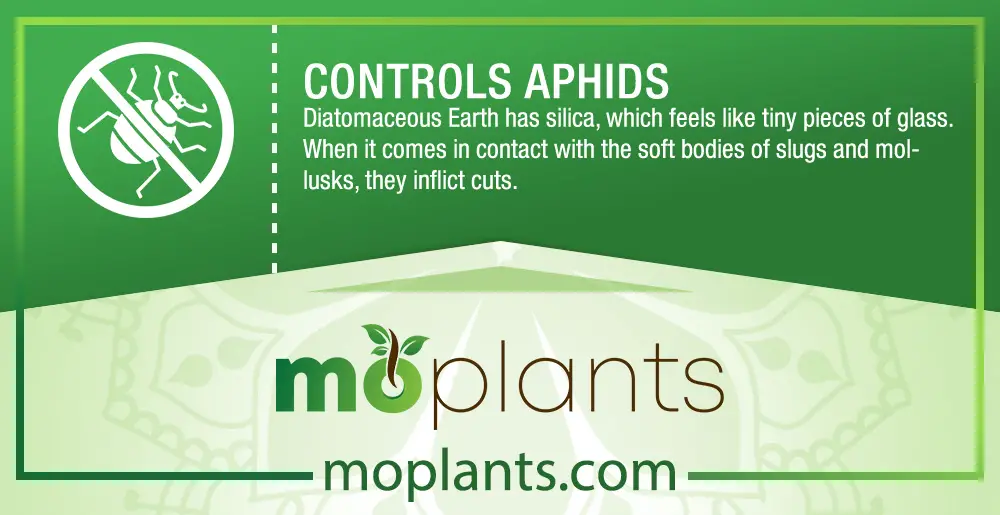
- Gets Rid of Maggots in Compost
A lot of larvae of different flies and insects can grow in the manure or compost pile. Some larvae like soldier flies do not cause harm to the plants; neither carry any disease.
If you have chickens on your farm, then you can take care of the maggot population, otherwise it is always advisable to take care of all larvae types as one group.. If you want a natural way of controlling larvae in your compost pile, Diatomaceous Earth is the best option. All that needs to be done is to lightly sprinkle it over the pile.
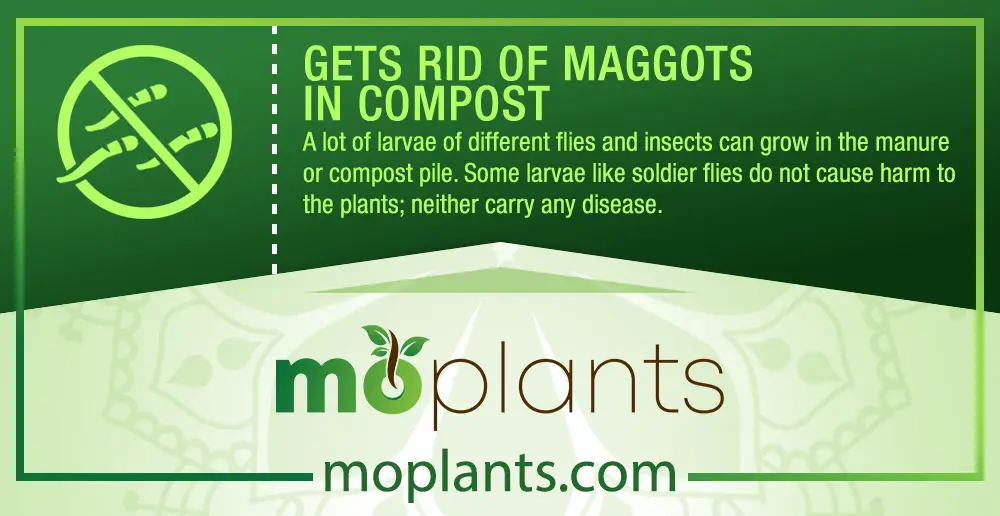
- Controls Ants and Mites
Although a few insects do not harm the plants, large ant colonies and fire ants can cause significant damage. The only problem is that ants work in collaboration with aphids and other insects by protecting themselves against predators. They also carry them to new plants as they travel around the garden.
In return, the ants enjoy the honeydew from them. One way to identify the cause of the damage is by looking for aphids near a plant. Most likely, you will also find ants. Spread some DE over and around the plants to get rid of them.
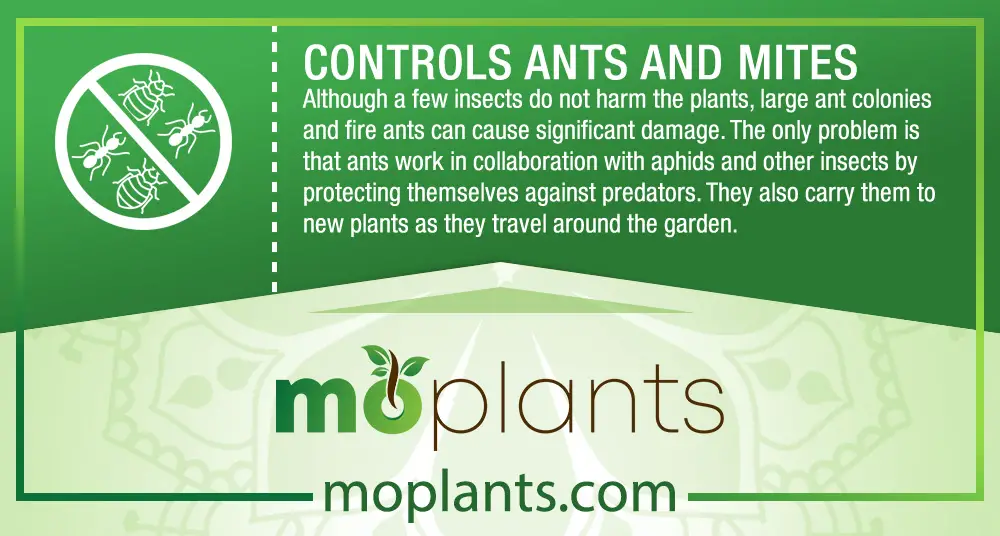
- Keep Rodents Away from The Garden
If you produce vegetables, rodents can be regular visitors to your garden. Rodents like rats, mice, and moles can eat all the vegetables and damage the garden. If you do not want to trap them or kill them, you can stop them from coming. Scents like lemon and peppermint have been known to deter rodents.
The best way to use DE for rodent control is to mix the powder with some essential oil of lemon or peppermint and dust around the garden. The powder can not only absorb the oil but also retain the fragrance for a long time.
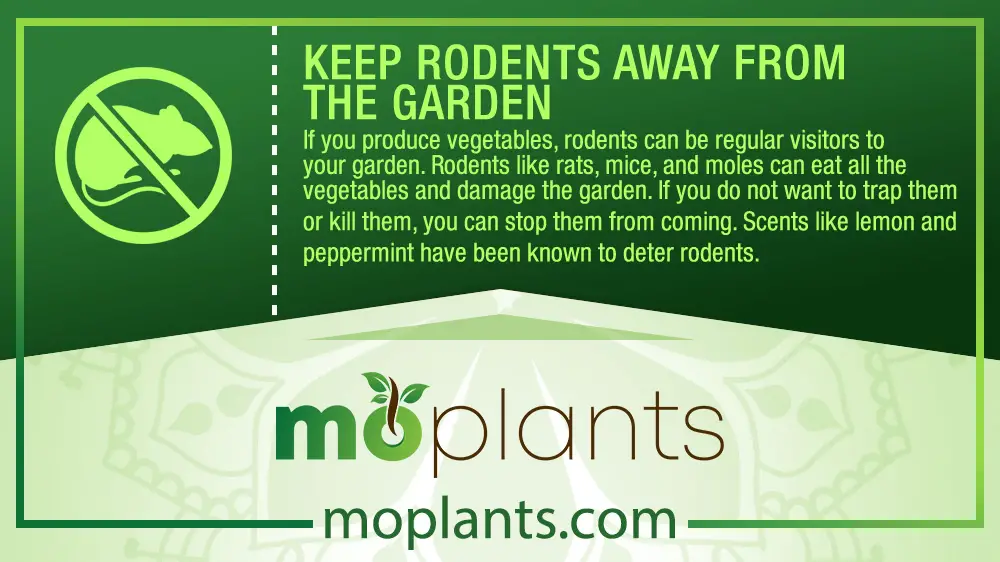
- Increases Porosity of The Soil
Diatomaceous Earth is a great ingredient to grow plants. Although it does not have the required nutrients needed for a plant, it can hold the fertilizers and then transfer them to the roots.
Along with this, it is highly porous, which makes it a great growing medium for Bonsai culture and hydroponic containers. When mixed with potting soil, DE can increase the soil drainage and air circulation near the roots.
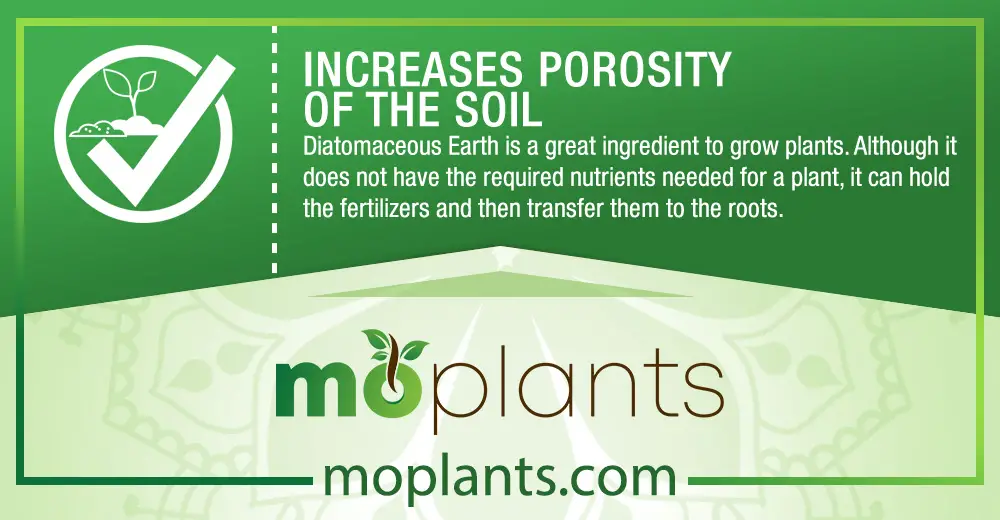
Infographic
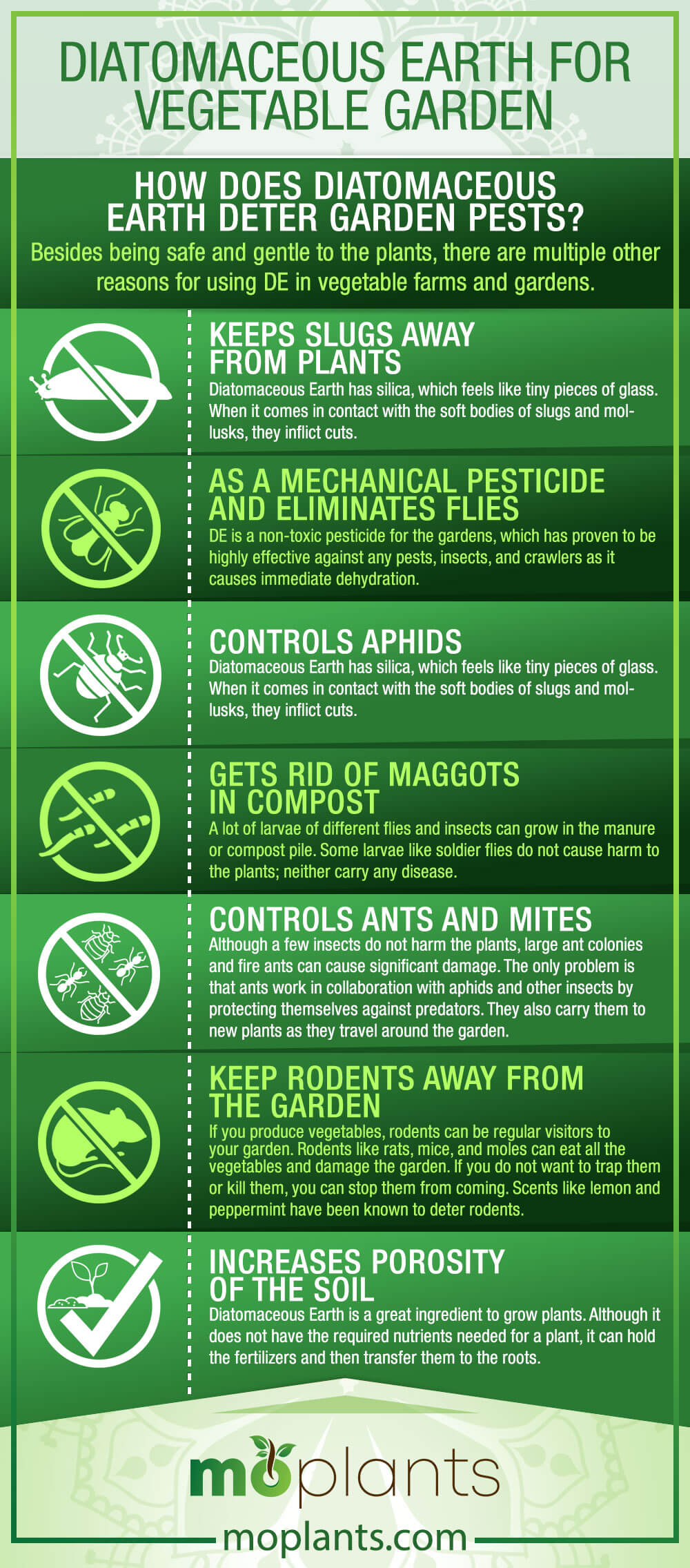
Steps to Using It Correctly
- We would advise you to buy food-grade quality DE. The kind of DE used in pool filters is not considered safe for growing vegetables.
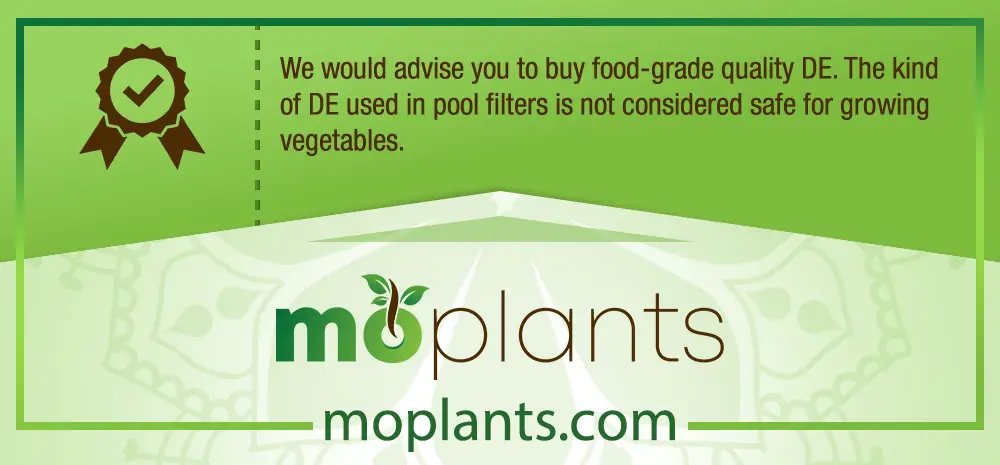
- Ensure you are well protected with gloves, mask, and goggles., Even though it’s non-toxic, it can irritate the lungs,trachea, and eyes.
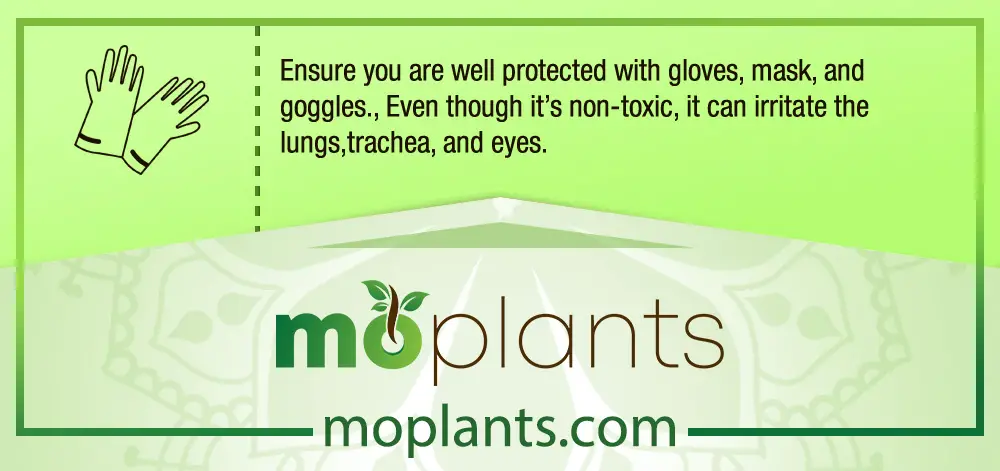
- Sprinkle the powder in the areas around the plants which need to be protected. Form a full circle and make sure there are no gaps for any pests to sneak in.
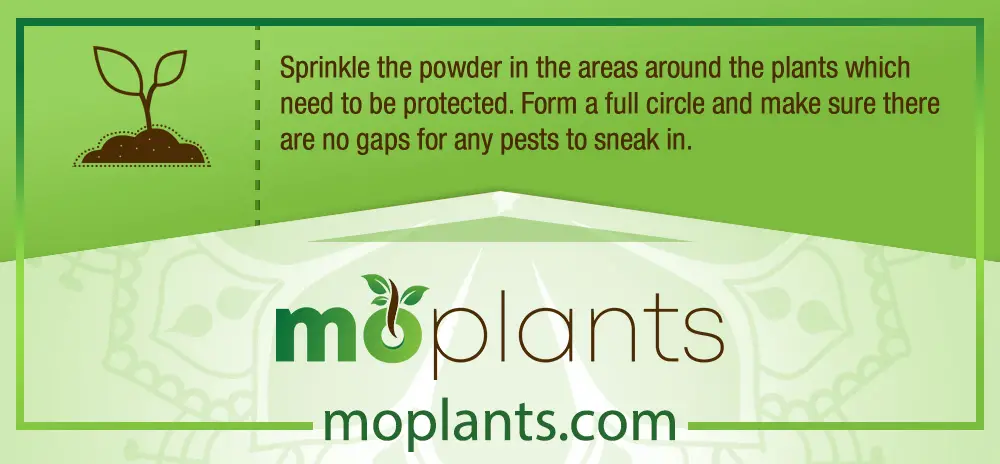
- If the pests damage leaves and fruits, you can lightly dust the DE powder on the leaves. Just be cautious that you are not spreading it near the flowers, which can hinder pollination.
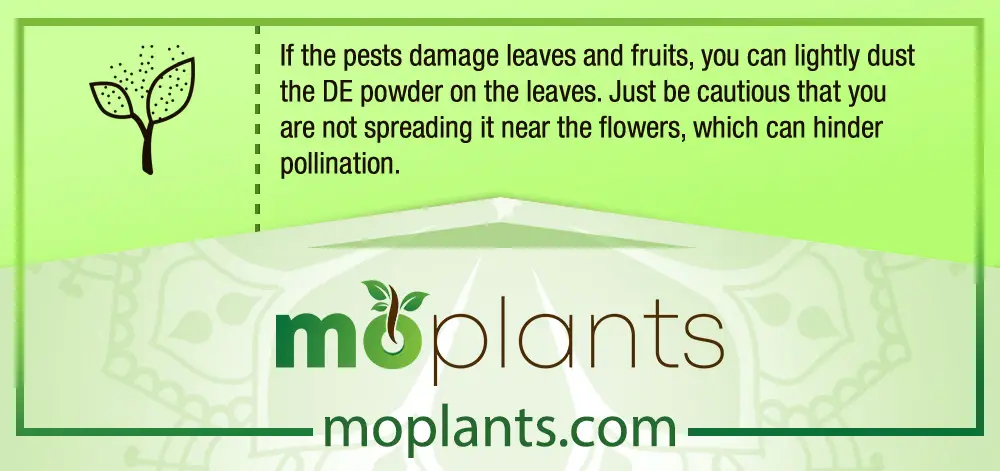
- It works wonders in powder form and dissolves if in contact with water. So remember to reapply if there is rain.
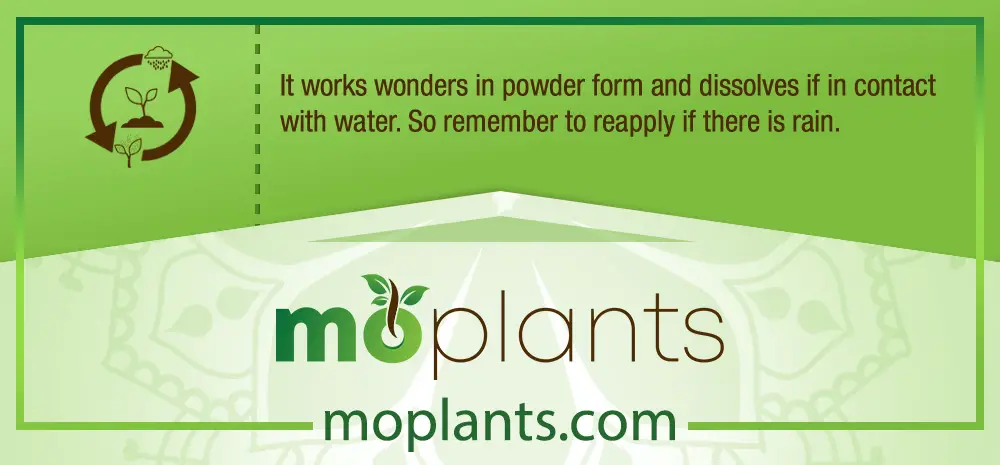
- The best time to apply it is early morning or late evening when the insects tend to gather around the gardens more.
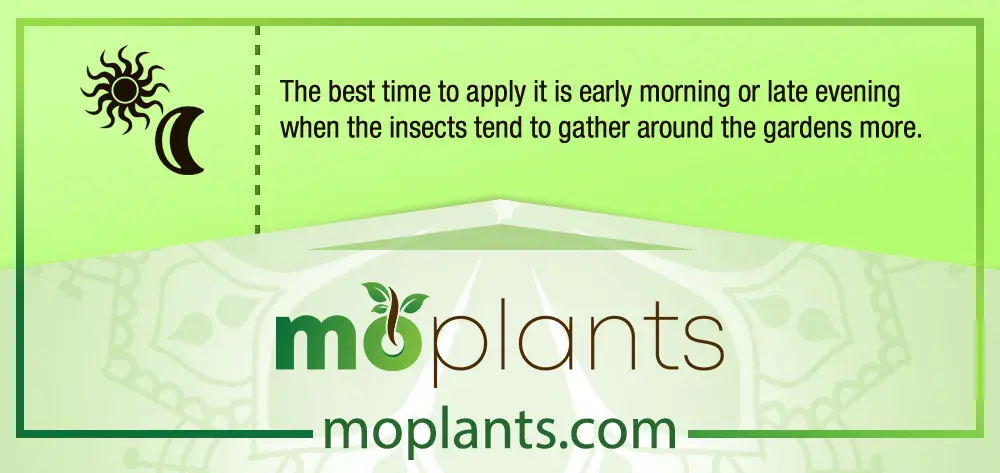
Infographic
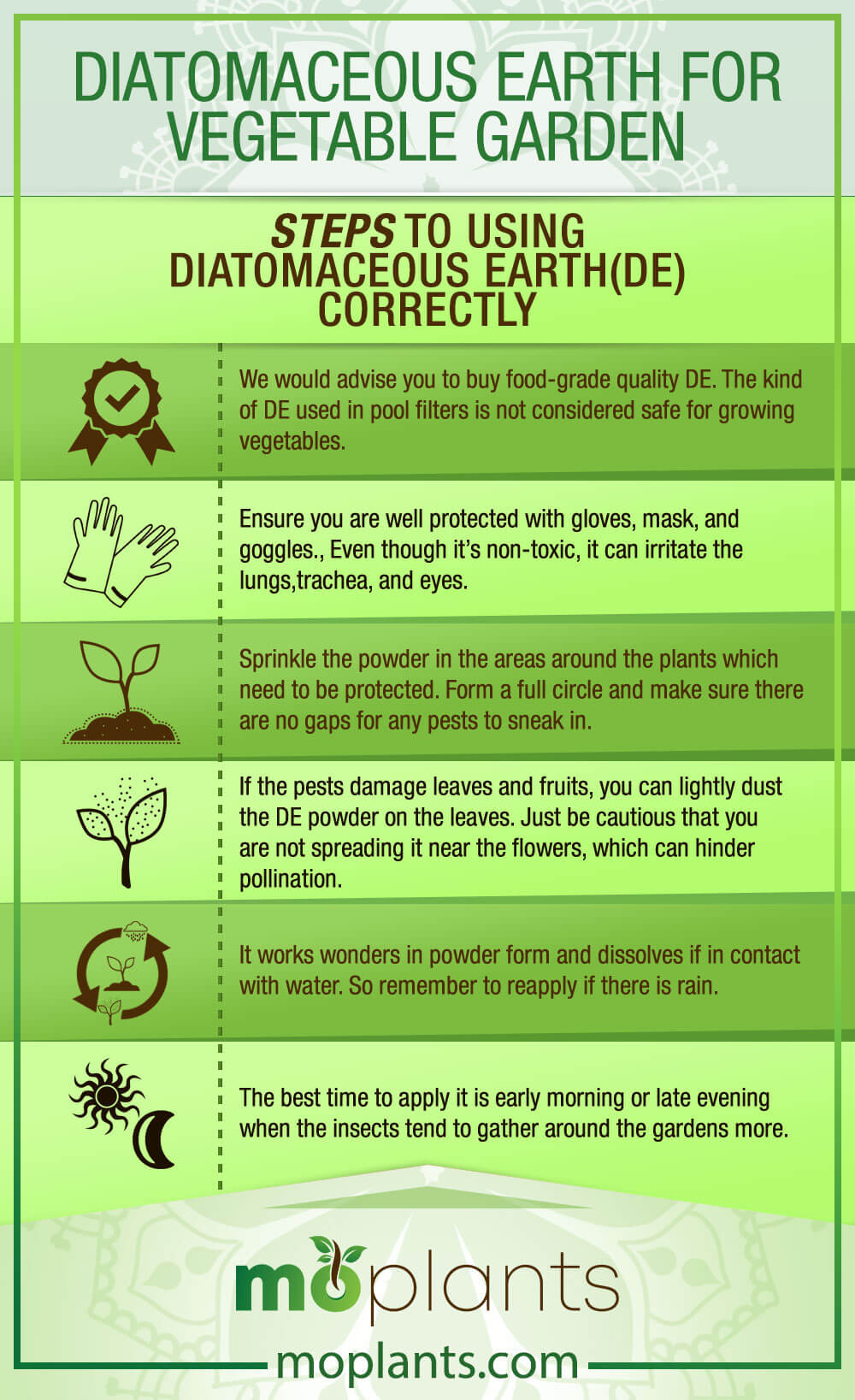
Final Thoughts
Without injecting the vegetables or covering the plants with harmful chemical pesticides, Diatomaceous Earth can be a great alternative. This naturally found substance does not interfere with the quality of fruits and vegetables and does not harm mammals or animals. They have a tremendous dehydrating property, and silica makes it coarse-textured, often dangerous for soft-skinned pests.
One disadvantage is that Diatomaceous Earth is ineffective against caterpillars, or insects with a slimy and gooey mucus lather surrounding the body. This mucus helps them travel safely through Diatomaceous Earth treated soil.
An organic garden isn’t always insect free, DE is a great way to improvise and use alternatives.

